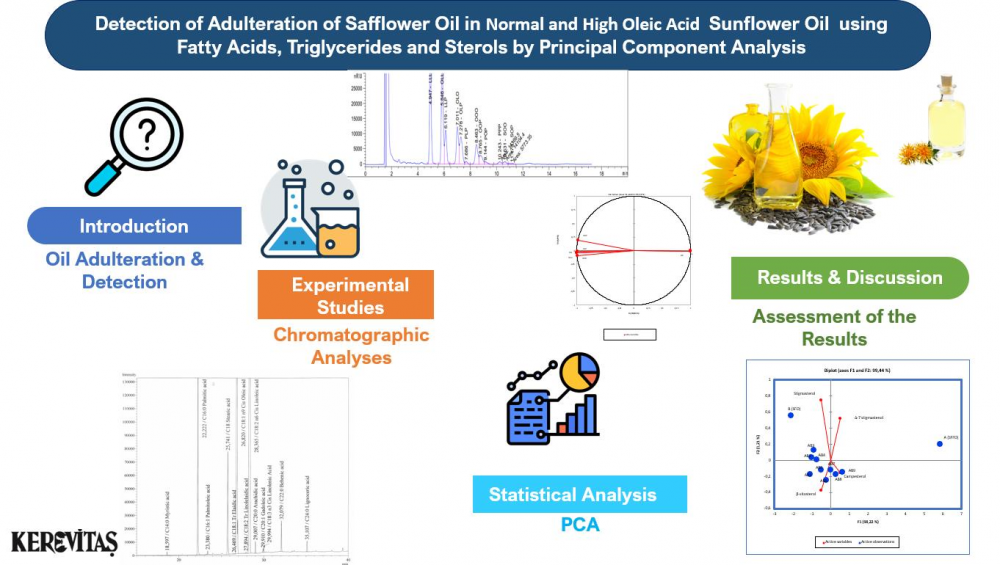JOURNAL 3139
Records of Agricultural and Food Chemistry
Year: 2024 Issue: 3 Special Issue: Abstracts 3rd. TCS, International Food Chemistry Congress February 29-March 03,2024 Antalya Türkiye
p.47 - 47
Viewed 201 times.
GRAPHICAL ABSTRACT

ABSTRACT
Vegetable oils are very important energy sources for human body and their authenticity has become a major issue for producers, consumers, and policy makers. Adulteration, a type of fraud, is performed by addition of cheap oils to the expensive ones. Although many advanced methods have been available to detect the adulterations in vegetable oils, it has still been an important problem for all stakeholders. While olive oil is the most adulterated vegetable oil due to its high price, the others can also be subjected to adulteration depending on their market price. Sunflower oil is one of the most consumed seed oils in the world, but it can also be adulterated with some other cheaper oils. Since both oils have very similar chemical compositions, detection of safflower oil in sunflower oil is a big challenge. In order to prevent consumer fraud, it is crucial to study the traceability of authentic vegetable oil. This study aimed to detect the adulteration of sunflower oil (SFO) with safflower oil (SFFO) using fatty acids, triacylglycerol components and sterol compositions. For this purpose, the blends of SFFO: SFO (2:98, 4:96, 6:94, 8:92, 10:90, 14:86, 18:72, 22:78, 26:74) were prepared and the changes in fatty acids, triacylglycerol and sterol compositions were determined. All findings were also analyzed by Principal Component Analysis (PCA) as statistical technique. As the amount of safflower oil in sunflower oil increased in adulterated samples, there was observed an increase in the amounts of linoleic acid and palmitic acid as fatty acids, LLP and LLL as triglycerides, and campesterol and ∆-7 stigmastanol as sterols.
KEYWORDS- Sunflower oil
- adulteration
- authentication
- fatty acids
- triacylglycerols
- PCA